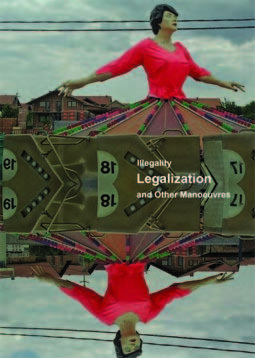Illegality, Legalization and Other Manoeuvres

Students: María del Pilar Cañamero, Lisa Euler
Location: Group work in Belgrade
Date: July, 2006
Type: Research project, student work
From a Western European point of view, based on the idea that urbanism is in the first place based on the principle of equality of justice and as such a juridical system, one of the most fascinating phenomena of many cities is the fact that a large part of the built-up environment is built or inhabited illegally. That is also the case in Belgrade. Apart from other issues, this reality makes it very difficult for a city to regain control over planning issues.
After the democratic government came to power in Serbia in the year 2000, the issue of wild construction came to the focus. Many wanted to restore the ‘dignity of the city’ and pleaded for large demolition operations. However, demolition was too expensive. Estimations were that it would cost the city government around 5 bil. DM. Reversely, the fees for legalization would bring money to city’s emptied reserves. Also, usually after a few years, inhabitants of initially illegal dwellings receive certain rights. Only few structures were actually demolished, as ‘examples’ and for representational purposes. The case of the ‘Two Brothers’, small rural houses built on top of a high-rise building next to one of the entrances to the city is illustrative of that. The roofs were rotated ninety degrees so as to make them less apparent.
The retroactive legalization of illegal buildings is an enormous operation. This drill is one on the scale of the whole city. It is a research about a form of retroactive planning; planning ‘after the facts’.
Download the Book PDF

